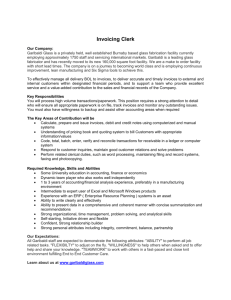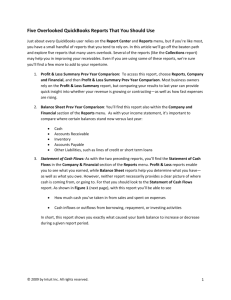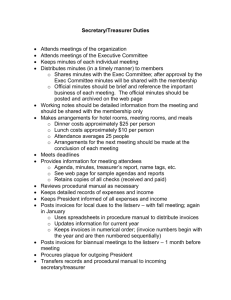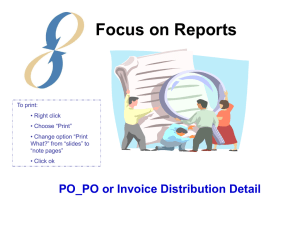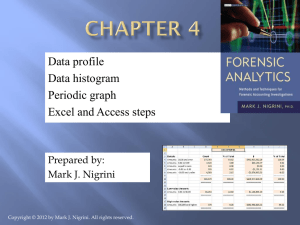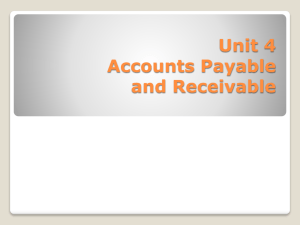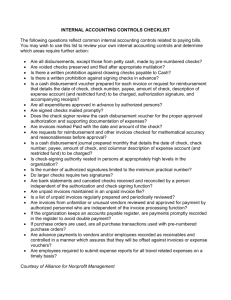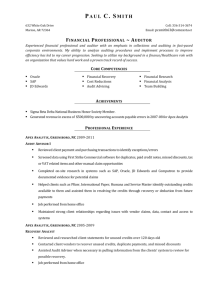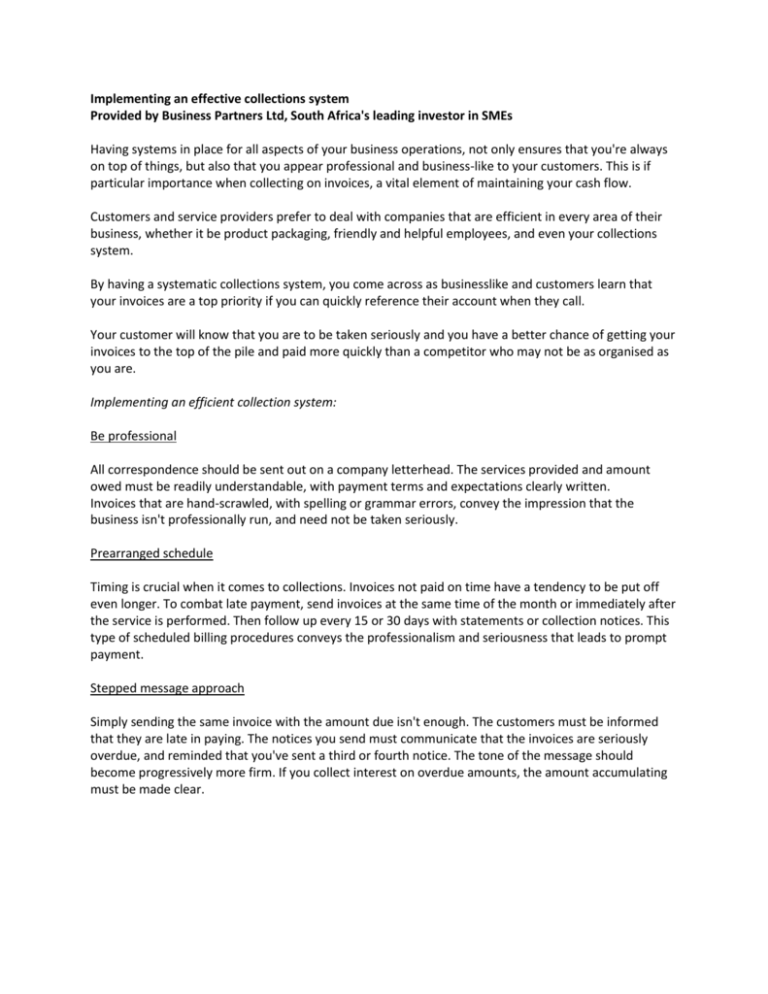
Implementing an effective collections system
Provided by Business Partners Ltd, South Africa's leading investor in SMEs
Having systems in place for all aspects of your business operations, not only ensures that you're always
on top of things, but also that you appear professional and business-like to your customers. This is if
particular importance when collecting on invoices, a vital element of maintaining your cash flow.
Customers and service providers prefer to deal with companies that are efficient in every area of their
business, whether it be product packaging, friendly and helpful employees, and even your collections
system.
By having a systematic collections system, you come across as businesslike and customers learn that
your invoices are a top priority if you can quickly reference their account when they call.
Your customer will know that you are to be taken seriously and you have a better chance of getting your
invoices to the top of the pile and paid more quickly than a competitor who may not be as organised as
you are.
Implementing an efficient collection system:
Be professional
All correspondence should be sent out on a company letterhead. The services provided and amount
owed must be readily understandable, with payment terms and expectations clearly written.
Invoices that are hand-scrawled, with spelling or grammar errors, convey the impression that the
business isn't professionally run, and need not be taken seriously.
Prearranged schedule
Timing is crucial when it comes to collections. Invoices not paid on time have a tendency to be put off
even longer. To combat late payment, send invoices at the same time of the month or immediately after
the service is performed. Then follow up every 15 or 30 days with statements or collection notices. This
type of scheduled billing procedures conveys the professionalism and seriousness that leads to prompt
payment.
Stepped message approach
Simply sending the same invoice with the amount due isn't enough. The customers must be informed
that they are late in paying. The notices you send must communicate that the invoices are seriously
overdue, and reminded that you've sent a third or fourth notice. The tone of the message should
become progressively more firm. If you collect interest on overdue amounts, the amount accumulating
must be made clear.
Special cases
Your collections system must take into account that you may not necessarily treat all accounts
receivable equally. Pay special attention to customers owing large amounts of money. In these cases,
consider supplementing your official invoicing approach with telephone calls at strategic times or to
strategic people. Include a personal letter or note with certain overdue notices, especially if you were
promised prompt payment, to gently remind the customer that you are keeping track of the account.
Overall policy
Most importantly, your invoicing system must convey how seriously you take your collections process,
especially for customers who becoming a problem. Show them that you have thought through the
collection process and that you are prepared to follow through, whether it's by referring the account to
a collection agency, loss of credit and possibly even court action.
Having said this; be flexible enough to allow for the human factor and variations among companies.
Sometimes the key to getting paid is making sure the invoice gets into the right hands, or appears at the
right time of the month.
The underlying system, however, will help you communicate your message to customers about getting
paid, improve your cash flow and entrench your relationships with loyal customers.
Copyright © 2012 Business Partners Ltd.
All rights reserved.

